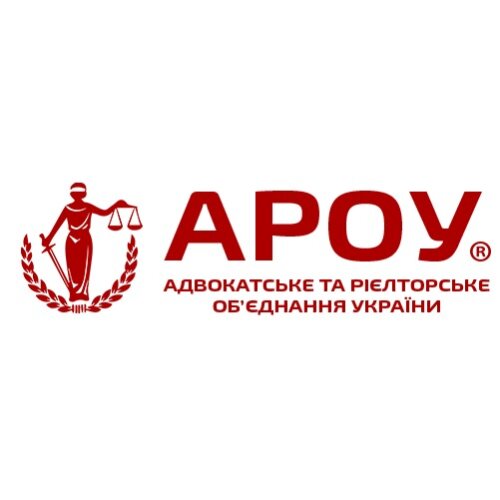Best Restructuring & Insolvency Lawyers in Ukraine
Share your needs with us, get contacted by law firms.
Free. Takes 2 min.
Or refine your search by selecting a city:
List of the best lawyers in Ukraine
About Restructuring & Insolvency Law in Ukraine
Restructuring and insolvency law in Ukraine focuses on legal processes that help businesses and individuals manage financial distress. Whether due to economic challenges, market shifts, or unforeseen crises, these laws aim to balance the interests of debtors and creditors. The framework allows for both the reorganization of viable companies facing financial trouble as well as the orderly liquidation of those that cannot continue. Ukraine's legislation has evolved significantly in recent years, aligning more closely with European standards and aiming to provide transparent and efficient pathways for addressing insolvency situations.
Why You May Need a Lawyer
Navigating restructuring and insolvency challenges can be complex. Legal assistance is often crucial in the following situations:
- Your business is experiencing persistent financial hardship and unable to pay debts on time.
- Creditors have initiated actions against your assets or have started bankruptcy proceedings.
- There are disputes regarding secured or unsecured claims during insolvency procedures.
- You want to explore pre-emptive restructuring options to avoid insolvency or bankruptcy.
- You are seeking to recover debts from an insolvent company as a creditor.
- The business is involved in cross-border transactions, complicating jurisdiction and applicable law.
- There are concerns about director or shareholder liability during insolvency proceedings.
Legal specialists help assess your circumstances, identify the most suitable path forward, ensure compliance with local regulations, and protect your interests throughout the process.
Local Laws Overview
Ukraine’s insolvency and restructuring landscape is governed primarily by the Code of Ukraine on Bankruptcy Procedures, effective since October 2019. The key aspects include:
- Initiation of Proceedings: Both debtors and creditors can initiate insolvency proceedings in commercial courts.
- Moratorium: Upon the initiation of bankruptcy, a moratorium is applied to prevent the enforcement of claims against the debtor’s assets, giving breathing space for negotiations and restructuring attempts.
- Restructuring (Sanation): This allows a debtor to propose and implement a rehabilitation plan under court supervision to restore solvency and continue business activities.
- Liquidation: If restructuring is not feasible, the debtor’s assets are liquidated and proceeds distributed to creditors according to statutory priorities.
- Priority of Claims: Claims are normally settled in a set order: secured creditors, wage arrears, taxes, and unsecured claims.
- Personal Insolvency: Since 2019, individuals (not just legal entities) have the right to initiate bankruptcy, offering debt relief mechanisms for private persons.
- Creditors’ Committee: Creditors play an active role in the procedure, including appointing insolvency trustees and voting on plans.
- Cross-Border Matters: The law contains provisions for recognizing foreign insolvency proceedings in Ukraine, helping manage multi-jurisdictional cases.
Understanding these laws is essential for making informed decisions during financially difficult times.
Frequently Asked Questions
What is insolvency in Ukraine?
Insolvency refers to a legal state where an individual or business cannot meet their debt obligations as they come due. In Ukraine, insolvency can be declared through court proceedings, potentially leading to restructuring or liquidation.
How does bankruptcy differ from restructuring?
Bankruptcy typically leads to the liquidation of a debtor's assets to satisfy creditor claims. Restructuring, or sanation, involves implementing a court-approved plan to restore the debtor’s solvency so the business can continue operations, offering a chance for recovery rather than immediate liquidation.
Who can initiate insolvency proceedings in Ukraine?
Both debtors (the entity or person in debt) and creditors (those owed money) can apply to the commercial courts to start insolvency proceedings. There are specific grounds and requirements for each party to initiate these procedures.
What protection does a debtor receive when insolvency is declared?
With the start of insolvency proceedings, a moratorium is imposed, which halts most enforcement actions, including asset seizures, court suits for debt recovery, and accrual of penalties. This provides debtors with the time and legal support necessary to explore restructuring options.
How are creditors’ interests protected during insolvency?
Creditors are organized into committees with rights to participate in decision-making, approve restructuring plans, and monitor the actions of the insolvency trustee. The law ensures transparent allocation of realized assets based on statutory priority.
Is bankruptcy the only option for insolvent companies?
No, bankruptcy is not the only option. Restructuring provides an alternative, offering businesses a structured path to restore solvency and continue their activity with court supervision, provided creditors support the plan.
Can individuals declare bankruptcy in Ukraine?
Yes, since 2019, individuals facing unmanageable debts can file for personal bankruptcy. The law provides procedures for asset realization and partial debt relief, designed to protect honest debtors while balancing creditor rights.
What is the typical timeline for insolvency proceedings?
The timeline can vary based on complexity, the scope of assets, number of creditors, and potential for restructuring. Simple cases may resolve in under a year, while complex corporate bankruptcies or contested restructurings can take several years.
What are the risks of handling insolvency without a lawyer?
Attempting to navigate insolvency procedures without legal support greatly increases risks such as missed deadlines, non-compliance penalties, inefficient asset management, and personal liability for directors or shareholders. Legal guidance helps mitigate these risks.
Can foreign creditors participate in Ukrainian insolvency cases?
Yes, foreign creditors have the same rights as domestic creditors in insolvency proceedings. The law also allows the recognition of foreign insolvency judgments, which is important for cross-border financial cases.
Additional Resources
For those seeking further information or assistance on restructuring and insolvency in Ukraine, the following resources may be helpful:
- Commercial Court of Ukraine: The court system that handles bankruptcy and restructuring cases.
- Ministry of Justice of Ukraine: Provides public access to bankruptcy legislation and updates on legal reforms.
- Association of Bankruptcy Trustees of Ukraine: Offers information on licensed insolvency trustees and professional best practices.
- National Bank of Ukraine: Useful for businesses and individuals regarding financial stability and debtor-creditor relations.
- Legal Aid Centers: State and non-profit organizations providing legal assistance for individuals and small businesses facing insolvency.
Next Steps
If you are facing financial distress or are concerned about insolvency or restructuring in Ukraine, consider the following actions:
- Assess your financial position and gather documentation regarding debts, assets, and income.
- Contact a qualified Ukrainian lawyer specializing in restructuring and insolvency law for an initial consultation.
- Discuss your circumstances and options, including restructuring, negotiation with creditors, or court procedures.
- Rely on legal guidance to prepare documents, represent your interests in negotiations or court, and ensure compliance with all procedures.
- Stay informed and organized throughout the process by maintaining open communication with your legal advisor.
Taking early, informed action is key to maximizing the options available for resolving insolvency and protecting your personal or business interests in Ukraine.
Lawzana helps you find the best lawyers and law firms in Ukraine through a curated and pre-screened list of qualified legal professionals. Our platform offers rankings and detailed profiles of attorneys and law firms, allowing you to compare based on practice areas, including Restructuring & Insolvency, experience, and client feedback.
Each profile includes a description of the firm's areas of practice, client reviews, team members and partners, year of establishment, spoken languages, office locations, contact information, social media presence, and any published articles or resources. Most firms on our platform speak English and are experienced in both local and international legal matters.
Get a quote from top-rated law firms in Ukraine — quickly, securely, and without unnecessary hassle.
Disclaimer:
The information provided on this page is for general informational purposes only and does not constitute legal advice. While we strive to ensure the accuracy and relevance of the content, legal information may change over time, and interpretations of the law can vary. You should always consult with a qualified legal professional for advice specific to your situation.
We disclaim all liability for actions taken or not taken based on the content of this page. If you believe any information is incorrect or outdated, please contact us, and we will review and update it where appropriate.
Browse restructuring & insolvency law firms by city in Ukraine
Refine your search by selecting a city.

















